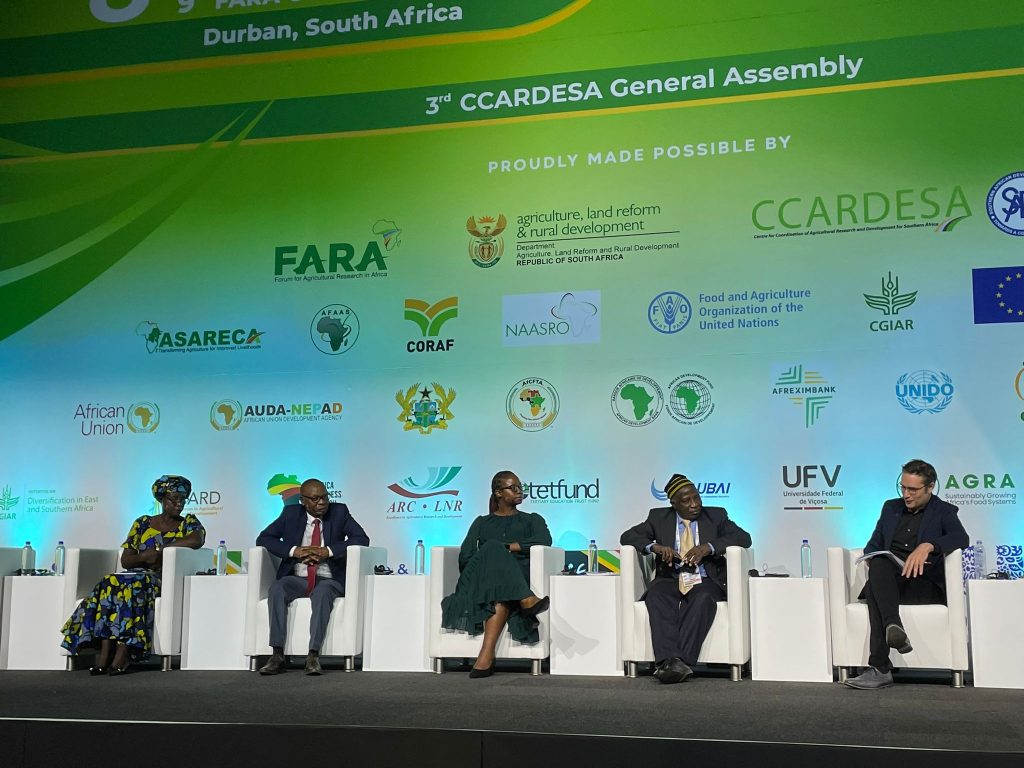June 29, 2023
Reiterating the commitment to leading agriculture innovation across Africa, Bram Govaerts, director general of the International Maize and Wheat Improvement Center (CIMMYT), took part in the 8th Africa Agribusiness and Science Week (AASW8), June 5-8, 2023, in Durban, South Africa.
 Partners discuss how to generate greater impact for farmers through regional partnerships between One CGIAR and African stakeholders (Photo: Liesbet Vannyvel/CIMMYT)
Partners discuss how to generate greater impact for farmers through regional partnerships between One CGIAR and African stakeholders (Photo: Liesbet Vannyvel/CIMMYT)
The theme of the AASW8 was linking science, innovation, and agribusiness for resilient food systems.
CGIAR System Board Chair Lindiwe Sibanda called for increased research and innovation to achieve an impact at scale and benefit African farmers at the opening ceremony.
Govaerts moderated a partner panel discussion regarding opportunities to strengthen the collaboration between One CGIAR and African research stakeholders.
Organizations represented on the panel included leaders from Technologies for African Agricultural Transformation, Total Landcare, Lupiya, Chitetezo Farmer Federation, and Green Sahel.
The African Development Bank, the African Union Commission, the Forum for Agricultural Research in Africa, and CGIAR also launched the Action Plan for the Abidjan II Communiqué that aims to build Africa’s resilience to future shocks by bolstering agricultural research and innovation systems to give farmers access to the science and technologies that they need to thrive.
“African countries must systematically review what is needed for the transformation of agrifood systems taking into consideration the present and future needs, and significantly increase investment in agricultural research and development,” said Govaerts.
Local and regional agribusiness is an essential industry playing a significant role in Africa’s prospects for economic growth and ensuring food security of its citizens. Still, challenges include regional harmonization of crop variety releases, surveillance of transboundary pests, and the growing threats of climate change.
“CIMMYT is dedicated to collaborating with local stakeholders to facilitate policies at the national, regional, and continental levels to promote proactive and eco-friendly management of transboundary plant health threats,” said Govaerts.